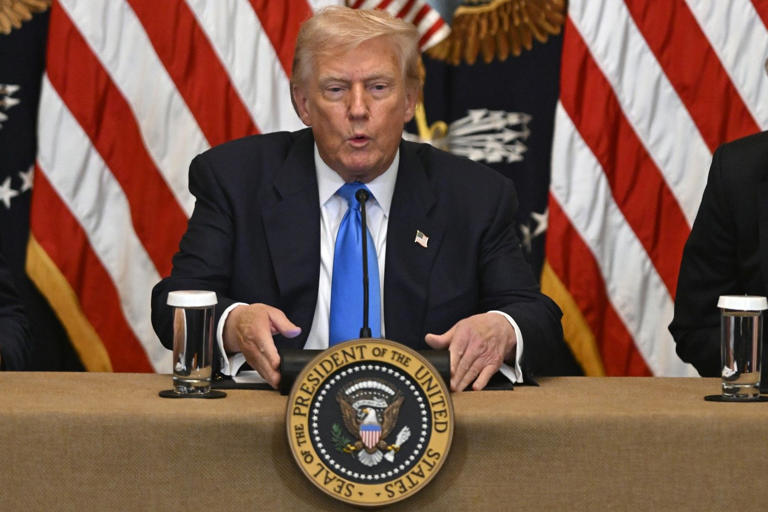A US federal appeals court has ruled to overturn much of Donald Trump's historic tariffs, ruling that the president illegally used his emergency powers to impose import taxes.
According to the unsigned reasoning of the Federal Appeals Court, which upheld an earlier lower court ruling, the International Emergency Economic Powers Act (IEEPA) does not authorize the imposition of tariffs like those that Trump has recently introduced.
The judges emphasized that these unprecedented tariffs constitute an excess of presidential powers, because the ability to impose taxes, including tariffs, is a “fundamental power of Congress” that the Constitution assigns exclusively to the legislative branch.
The tariffs remain in place for now, as the court stayed the implementation of its ruling until October, giving the Trump administration time to appeal to the Supreme Court. “All tariffs are still in place!” Trump wrote in a post on social media late Friday.
“If these tariffs were ever lifted, it would be a total disaster for our country.”
The tariffs are a key pillar of the president’s economic plan, affecting not only global trade but also the United States’ relations with allies and adversaries.
If some of the powers he invoked to impose them are permanently blocked, the administration will have to look for other mechanisms to achieve Trump’s ambitious goals.
Treasury Secretary Scott Bessant said in June that tariff negotiations with trading partners would be “completed” by Labor Day.
But that timeline now seems unattainable, as foreign leaders reviewing their trade terms with the U.S. may now seek further legal clarity on the basis of the tariffs.
In a statement to the court on Friday, Bessant warned that suspending the tariffs would cause “dangerous diplomatic embarrassment,” disrupt ongoing negotiations and heighten the risk of retaliation from other countries.
Similarly, Commerce Secretary Howard Latnick argued that a ruling against the tariffs would cause “irreparable harm” to the United States and risk “unwinding” trade agreements that Trump had already announced — such as frameworks for cooperation with the European Union, the United Kingdom and Japan.
A victory for the Constitution, plaintiffs say Instead, plaintiffs argued that the ruling shows the clear limits of presidential powers, even as Trump insists his powers are broad and unparalleled.
“This is a victory for the U.S. Constitution; our founders made it clear that decisions as critical as taxation should be made by Congress, not by the president with a simple signature,” attorney Neil Katyal told CNN.
“The court, by a vote of 7-4, rejected the idea that the president can do whatever he wants, whenever he wants.” The White House defended the president’s authority to impose import tariffs under the Economic Emergencies Act. “President Trump lawfully exercised the powers granted to him by Congress to defend our national and economic security from foreign threats,” said White House spokeswoman Kush Desai.
“The tariffs remain in place, and we expect an ultimate victory.” Attorney General Pam Bondi announced on social media that the government would appeal. Katial, however, made it clear in a conference call with reporters that, if there is an appeal, “we will be prepared to demonstrate to the Supreme Court why this is an illegal and dangerous usurpation of Congressional authority.” Matter returns to lower court
The appeals court ruled that Congress, in enacting IEEPA, did not grant the president “broad authority to impose duties of the nature of Reciprocal and Anti-Trade Duties.” “Notably, in drafting IEEPA, Congress did not use the term ‘tariff’ or its synonyms, such as ‘imposition’ or ‘tax,’” the majority said[u1] . “The absence of such language is at odds with other statutes where Congress has expressly granted this authority and has set clear limits.”
The majority concluded that Trump’s effort to impose broad tariffs like those at issue is of such “magnitude” that it requires express congressional authorization.



No comments:
Post a Comment
No adult content please.
Articles accepted having references.
No advertisement accepted.